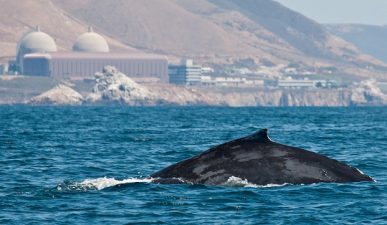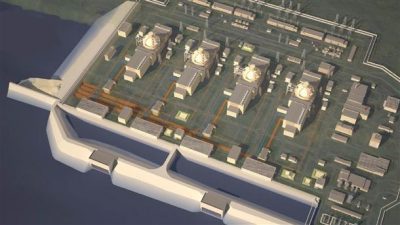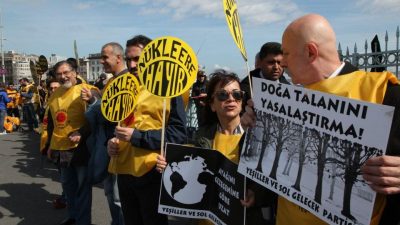The earthquake struck approximately 20 kilometers north of the city of Van, pictured above. Turkey’s seismology institute estimated the final death toll would reach 1,000.
A 7.2-magnitude earthquake slammed Turkey‘s eastern province of Van on Sunday. Two days afterward, 366 deaths have been reported, 1,301 injured persons are being treated, and more than 2,000 buildings have collapsed.
Although the temblor didn’t shake the Black Sea region of Sinop, which was some 800 kilometers northwest of the epicenter, it may have stalled plans to build a nuclear power plant (NPP) there. The Korean nuclear industry now expects the Sinop NPP to be canceled, news agency dongA reports.
Nuclear ambitions
Turkey has already signed a deal with Russia to build a NPP at Akkuyu, a city off its southern Mediterranean coast. The Akkuyu plant would be the country’s first. But for the past year, Turkey has also been arranging to build a second NPP at Sinop, on the country’s northern coast at the Black Sea.
Although South Korea was the first country that Turkish officials considered when planning the Sinop NPP, the Turkish government switched its attention to Japanese nuclear companies last year, apparently attracted by their expertise about building NPPs in seismically active areas. After the Fukushima disaster earlier this year, however, Japan pulled out of all foreign nuclear projects, officially canceling its involvement in the Sinop NPP negotiations in July.
On an August visit to Seoul, Turkish Foreign Minister Zafer Çağlayan reaffirmed his government’s interest in hearing offers from South Korean nuclear firms for the Sinop project: “My ministry and the Turkish government are open to every proposal by South Korean companies over the issue of nuclear power plants.”
Cooling down
After the devastating earthquake that rocked Turkey’s southeast on Sunday, however, the Korean nuclear industry expects Turkey to drop the Sinop NPP. The Korea Electric Power Corporation and the country’s economy ministry will “change their strategy,” according to the report in dongA.
Sinop is on a small peninsula that juts into the Black Sea, and was one of the areas in Turkey most affected by the 1986 Chernobyl nuclear meltdown. The radiation that emanated from Chernobyl destroyed years of harvest for Turkish farmers along the Black Sea coast, and is believed to be responsible for unusually high cancer rates in the area today.
Although Sinop (unlike Akkuyu) doesn’t lie on an active fault, Sunday’s earthquake occurred 100 kilometers from the nearest major faultline, highlighting the unpredictability of seismic activity in this especially earthquake-prone country.
:: dongA
Read more about nuclear power in Turkey and the region:
Greenpeace Raises More Questions Over Jordan’s Nuclear Plans
Post-Chernobyl Agriculture In Turkey: A Sign Of What’s In Store For Japan?
Despite Japan, Turkey Goes Ahead With Nuclear Reactors
Image via ABDURRAHMAN ANTAKYALI/AFP/Getty Images




